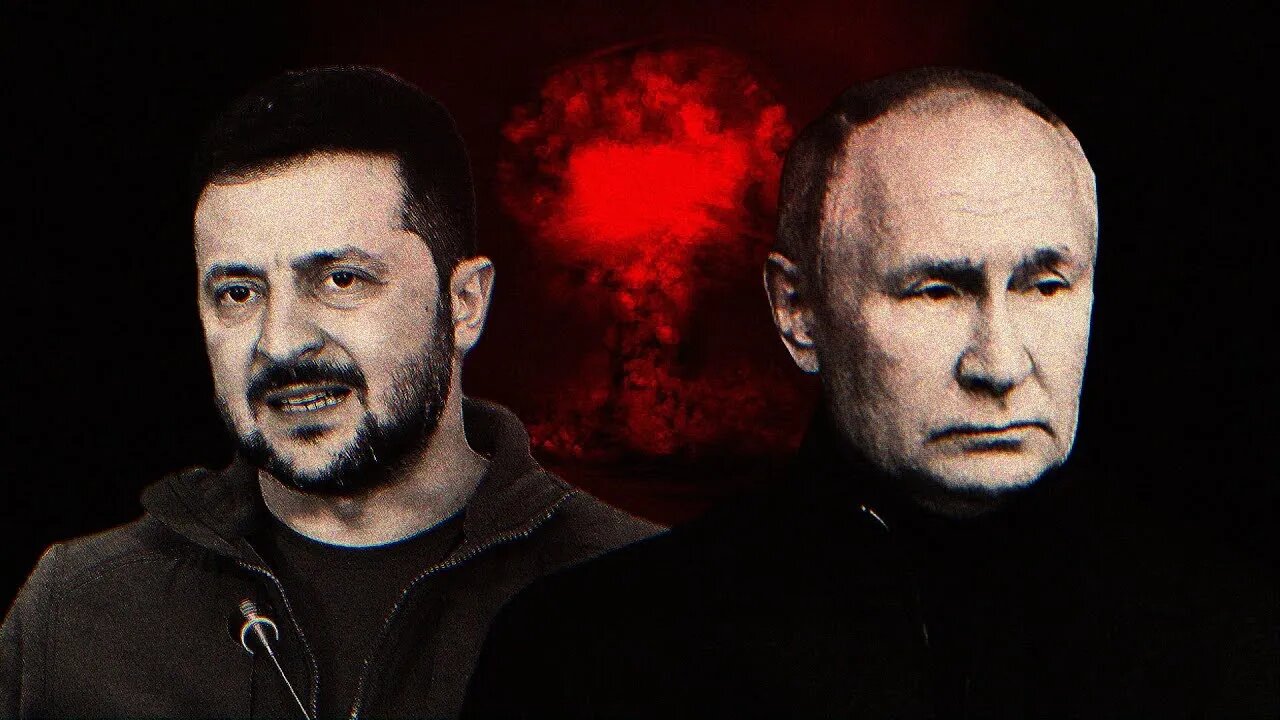Premium Only Content

The nuclear threat
Antiwar.com's Scott Horton and former Army Lt. Col. Daniel Davis warn about the grave danger of escalating the war in Ukraine
https://reason.com/video/2022/11/07/t...
----------------------
President Joe Biden has said that the world hasn't been this close to nuclear armageddon since the 1962 Cuban missile crisis. Vladimir Putin has issued grave threats and then backtracked. In late September, he announced in a televised address that he would use "all available means to protect Russia and our people."
"This is not a bluff," he said.
Then, in a speech on October 27, he said, "There is no point in [using nuclear weapons], neither political nor military." But The New York Times reported last week that Russian military leaders recently held meetings without Putin to discuss when and how to use tactical nuclear weapons in Ukraine.
Antiwar.com's Scott Horton, editor of the new book Hotter Than The Sun: Time To Abolish Nuclear Weapons, says that we should take seriously the possibility that the Ukraine conflict could escalate to a world-ending war. Putin and several of his top military leaders have threatened nuclear attacks multiple times since their February invasion of Ukraine, he points out.
Daniel Davis, a senior fellow for Defense Priorities and a former lieutenant colonel in the U.S. Army, says he's concerned that "Biden's stated policy is to help Ukraine no matter how long it takes to win back their territory," something that Davis argued "can't be accomplished without throwing us in extraordinarily high nuclear risk." Davis says that despite its mistakes, Russia's military is quite capable, and he expects coming reinforcements to swing the war back in Moscow's favor come December.
Lt. Col. Davis also says that in the unlikely event that Ukrainian President Zelenskyy successfully drives Russia out of all parts of Ukraine, including Crimea, it would increase the chances that Russia uses nuclear weapons so that Putin can stay in power. The U.S. should supply just enough defensive weapons to keep Russia from totally dominating the country, he says, and then open "backdoor negotiations and diplomatic channels with both sides" in order to end the war as soon as possible.
Horton says that a diplomatic solution could have been reached back in April, pointing to an article co-written by Fiona Hill, a former senior director for European and Russian affairs on the National Security Council, stating that "according to multiple former senior U.S. officials…in April 2022, Russian and Ukrainian negotiators appeared to have tentatively agreed on the outlines of a negotiated interim settlement." According to a Ukrainian newspaper and a press release from the British government, then–Prime Minister Boris Johnson urged Zelenskyy to avoid such negotiations with Russia.
In late September, Putin announced the annexation of four Ukrainian territories that border Russia, asserting that residents of the occupied territories would be Russian citizens forever and that any attacks against the annexed regions would be considered aggression against Russia itself. "To get [Putin] to back down" from these annexations, Horton argues, "is going to be virtually impossible now."
"Nobody in Ukraine and nobody in the West wants to allow Russia to keep one inch of territory that they've taken," says Lt. Col. Davis. But achieving that goal is not a realistic option. "To try and accomplish that objective is to almost certainly escalate the fight to a nuclear conflict…what is realistically possible is to freeze the war where it's at right now before Ukraine loses any more territory."
But what would be the moral hazard of backing down? Yale historian Timothy Snyder has written that negotiating with Putin will only "make future nuclear war much more likely" because the lesson for future dictators would be "that all they need is a nuclear weapon and some bluster to get what they want."
Lt. Col. Davis says "that already exists and that's part of the reality. Russia has nuclear weapons, North Korea has nuclear weapons, [and] you're not gonna roll that back."
"Russia has so badly harmed itself with all of the losses that it's sustained up to this point already, that it's gonna take decades to recover from that. A lot of these sanctions will never be rolled back, at least not in our lifetimes. And so the harm that the nation of Russia has suffered already and will continue to suffer is significant and hardly a blueprint for anyone else to wanna follow."
Horton says the war in Ukraine shows that deterrence is too risky of a strategy and should reinvigorate the push for disarmament. Deterrence "only works until it stops working," he argues. "And once it stops working, then that's it. It's called the Doomsday Machine because it's made to be used completely."
Produced by John Osterhoudt; edited by Osterhoudt and Zach Weissmueller; additional graphics by Regan Taylor.
ReasonTV
https://www.youtube.com/user/ReasonTV
-
 6:34
6:34
Kurt's News
2 months agoBad Cop Harasses The WRONG Guy and INSTANTLY Regrets It
701 -
 2:42:10
2:42:10
TimcastIRL
4 hours agoTrump To SHUTTER 120 IRS Offices In MASS PURGE, Democrat LEAKED Tax Info w/Mike Crispi | Timcast IRL
119K38 -
 DVR
DVR
Alex Zedra
3 hours agoLIVE! New Game | R.E.P.O
13.3K -
 1:52:42
1:52:42
Kim Iversen
5 hours ago💰 CHA-CHING! 💰 Trump Unveils Big Money Plans For Gaza AND America
40.2K91 -
 1:05:28
1:05:28
Flyover Conservatives
17 hours agoUkraine’s Dirty Secret: The Christian Persecution No One Wants to Talk About - Alex Newman | FOC Show
29.4K10 -
 2:00:20
2:00:20
Glenn Greenwald
10 hours agoThe View from Moscow: Key Russian Analyst Aleksandr Dugin on Trump, Ukraine, Russia, and Globalism | SYSTEM UPDATE #414
87.4K29 -
 1:10:55
1:10:55
Donald Trump Jr.
7 hours agoBREAKING NEWS: My Father Revokes Biden-Maduro Oil License, LIVE with Maria Corina Machado | Triggered Ep.220
174K185 -
 1:25:29
1:25:29
Sarah Westall
6 hours agoX-Files True History, Project Blue Beam, Cabal Faction War w/ Former FBI Agent John DeSouza
64.9K5 -
 7:03:49
7:03:49
Dr Disrespect
13 hours ago🔴LIVE - DR DISRESPECT - NEW PC VS. DELTA FORCE - MAX SETTINGS
153K26 -
 49:04
49:04
Lights, Camera, Barstool
1 day agoIs The Monkey The Worst Movie Of The Year?? + Amazon Gets Bond
62.3K4